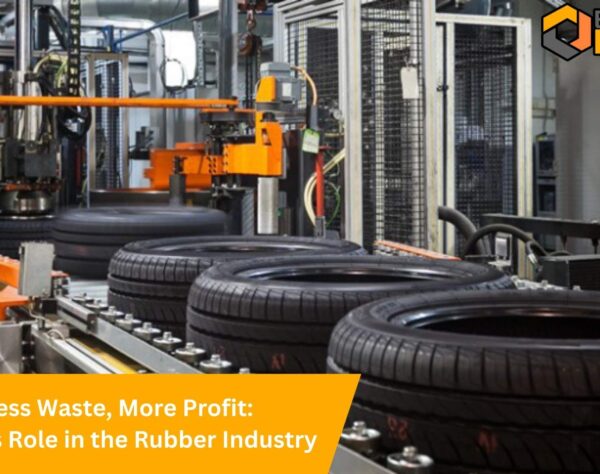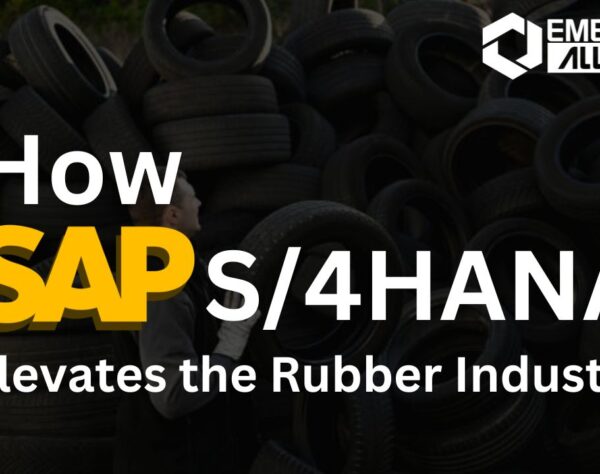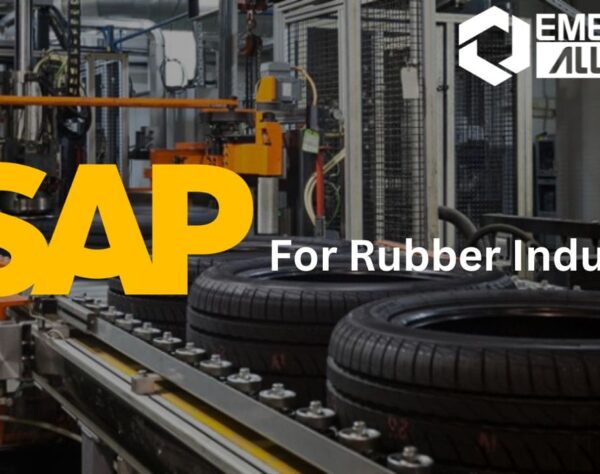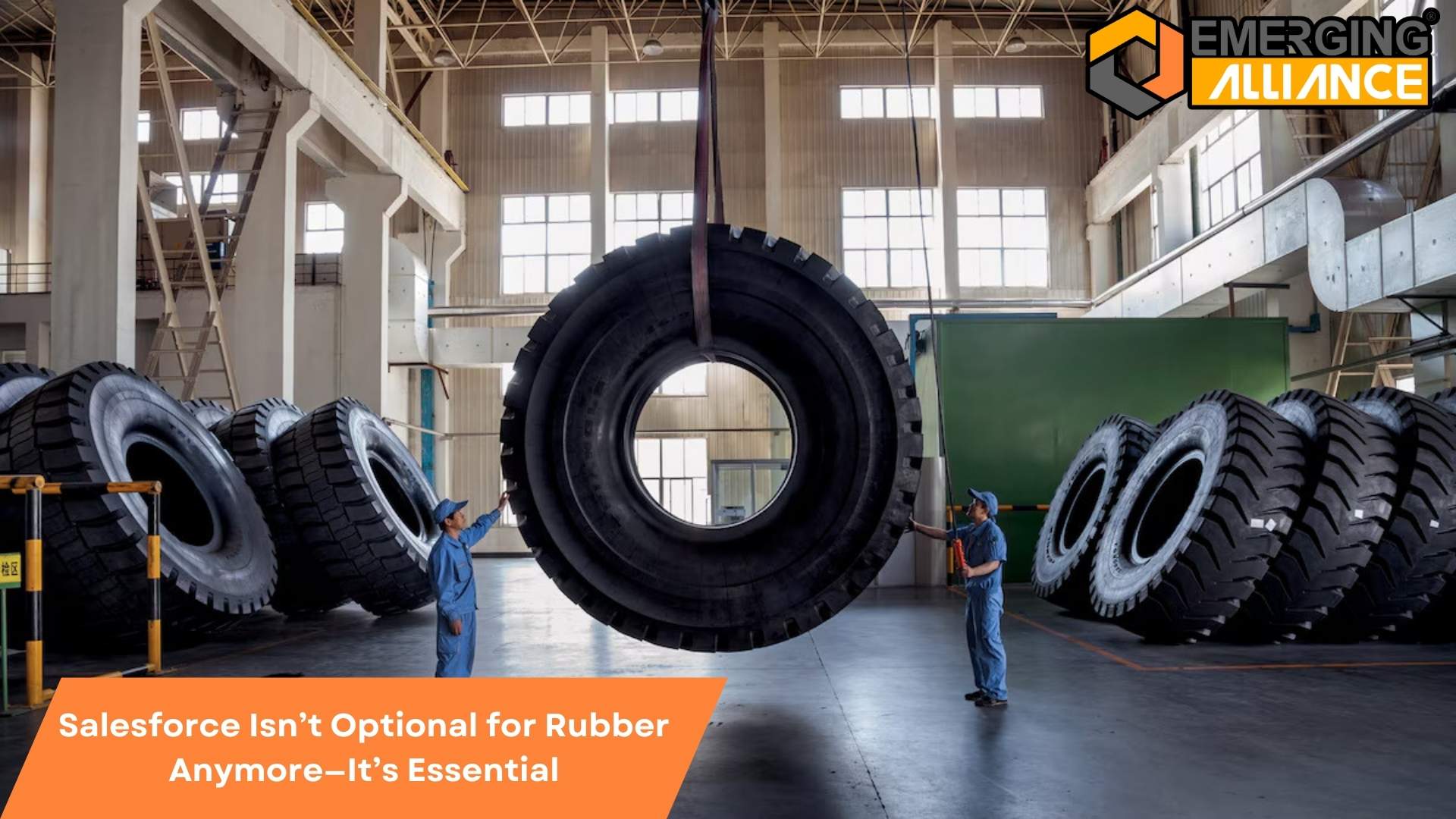
Salesforce Isn’t Optional for Rubber Anymore—It’s Essential
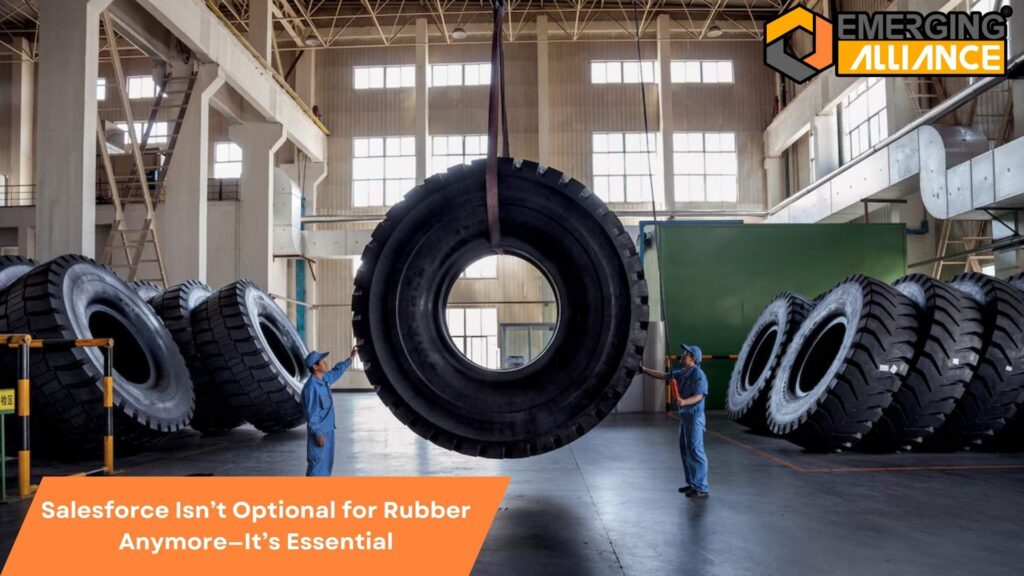
Why Salesforce CRM Is Now a Non-Negotiable for the Rubber Industry
Rubber is elastic, flexible, and resilient—qualities today’s rubber companies must also embody to compete in a digital-first world. As the industry evolves beyond basic manufacturing and distribution, customer expectations are tightening. Speed, personalization, and service consistency are no longer “nice-to-haves”—they’re required.
And that’s exactly where Salesforce CRM steps in.
Whether you’re in the business of tires, hoses, gaskets, belts, or industrial rubber parts, Salesforce gives your teams the grip they need on sales, service, and customer relationships. Not tomorrow—now.
Outdated Tools Can’t Keep Up with Modern Rubber Markets
Let’s face it: rubber businesses often lag behind in customer-centric technology. Still relying on spreadsheets, disjointed customer data, and manual processes? Then you’re already slipping behind competitors who are embracing cloud-based CRM platforms like Salesforce.
Here’s what outdated systems lead to:
- Delayed responses to customer queries
- Lost leads due to poor follow-up
- Missed cross-sell and upsell opportunities
- Zero visibility into customer journeys
- Unpredictable revenue forecasts
In contrast, Salesforce helps rubber businesses stretch their performance, bounce back from disruptions, and roll toward growth with confidence.
From Sticky Situations to Seamless Success: What Salesforce CRM Does for Rubber
1. Centralize and Humanize Customer Data
Think of Salesforce as your digital memory. Every call, quote, email, and order history is stored in one place, giving your team full visibility into every customer. No more digging through files or asking others to “send over the spreadsheet.”
2. Automate the Follow-Up Game
Rubber products often have maintenance or repeat order cycles. Don’t let opportunities slip away. Salesforce automates:
- Follow-up emails
- Service reminders
- Contract renewals
- Upsell suggestions
Set it once—then let it run.
3. Transform Sales Conversations
Equip your sales team with real-time insights on each customer’s history, preferences, and active opportunities. With Salesforce Sales Cloud:
- Leads are scored and prioritized
- Reps close faster
- Forecasting becomes sharper and smarter
4. Deliver Proactive, Not Reactive, Customer Service
Using Salesforce Service Cloud, rubber businesses can:
- Log and track service tickets
- Assign cases based on urgency or region
- Automate escalation and response workflows
The result? Happier customers, faster resolutions, and a stronger brand reputation.
5. Field Service That Actually Serves
Rubber installations and servicing need responsive field teams. Salesforce Field Service helps schedule technicians, route visits, track inventory, and sync updates instantly from mobile devices.
The Power of Personalization in the Rubber Sector
Your clients are no longer satisfied with “one-size-fits-all.” Whether they’re OEMs, dealers, or industrial end-users, each expects:
- Custom quotes based on usage
- Personalized product recommendations
- Tailored service contracts
- Consistent after-sales support
With Salesforce CRM, rubber companies can design unique customer journeys that align with the specific needs of every account. It’s the difference between being just another vendor—and becoming a trusted partner.
Real Results: Salesforce Success Stories in Rubber
- An international tire supplier reduced lead response time from 2 days to 2 hours using Salesforce automation.
- A rubber flooring manufacturer improved customer retention by 48% with Salesforce’s targeted re-engagement campaigns.
- A gasket producer streamlined complaint resolution by 65% using Service Cloud case routing and SLA alerts.
These aren’t pipe dreams. They’re what happens when rubber businesses embrace CRM transformation.
A CRM That Scales with You
Salesforce isn’t a plug-and-play tool. It’s a platform you can mold:
- Add custom fields for rubber product specs
- Create workflow automations for sampling, trials, or inspections
- Launch dealer or distributor portals
- Connect with IoT-enabled production data
Whether you’re scaling into new markets or diversifying products, Salesforce scales right alongside you.
Why the Rubber Industry Needs Salesforce CRM—Now
- Speed = Survival: Quick response wins the deal.
- Data = Direction: Real-time analytics drive smarter decisions.
- Service = Loyalty: Proactive support builds customer lifetime value.
- Automation = Scale: Free up your team to do what they do best.
This isn’t just about technology—it’s about transforming how your rubber business sells, serves, and grows.
Bounce Forward, Not Backward
The rubber industry has always been built on strength and flexibility. But in today’s landscape, those qualities must extend beyond your products—to your customer relationships.
With Salesforce CRM, your rubber company gains the tools to:
- Strengthen customer bonds
- Respond to demand shifts
- Create personalized experiences
- Grow predictably and sustainably
So, are you going to let outdated systems deflate your growth—or bounce forward with Salesforce?
Salesforce isn’t optional for rubber anymore—it’s essential.
FAQs
1. How does Salesforce CRM support personalized selling in the rubber industry?
Salesforce uses customer profiles, order history, and AI-driven recommendations to tailor sales approaches.
2. Can Salesforce help rubber companies automate reordering cycles?
Yes, Salesforce automates reminders and workflows based on expected product usage timelines.
3. How does Salesforce streamline complaint management in rubber manufacturing?
Service Cloud logs, routes, and tracks complaints, ensuring timely resolutions and accountability.
4. Is Salesforce suitable for B2B-focused rubber businesses with large dealer networks?
Absolutely. Salesforce PRM supports dealer portals, performance tracking, and automated partner communication.
5. Can Salesforce track product performance through service tickets?
Yes, service data can be analyzed to identify recurring product issues and improve quality.
6. Does Salesforce integrate with rubber production or quality control systems?
Salesforce allows API integration with ERP, MES, and LIMS systems used in rubber manufacturing.
7. How does Salesforce support mobile sales teams in the rubber sector?
Sales reps can access CRM data, update leads, and generate quotes on-the-go using Salesforce mobile apps.
8. What reporting tools does Salesforce offer for rubber companies?
Custom dashboards, sales forecasting, case resolution trends, and customer segmentation insights are available.
9. Can Salesforce CRM help reduce customer churn for rubber companies?
Yes, with journey tracking, automated follow-ups, and proactive service tools, customer churn can be minimized.
10. Is Salesforce affordable and scalable for small to mid-sized rubber businesses?
Yes, Salesforce offers flexible editions and modular pricing to suit the needs of growing rubber enterprises.




